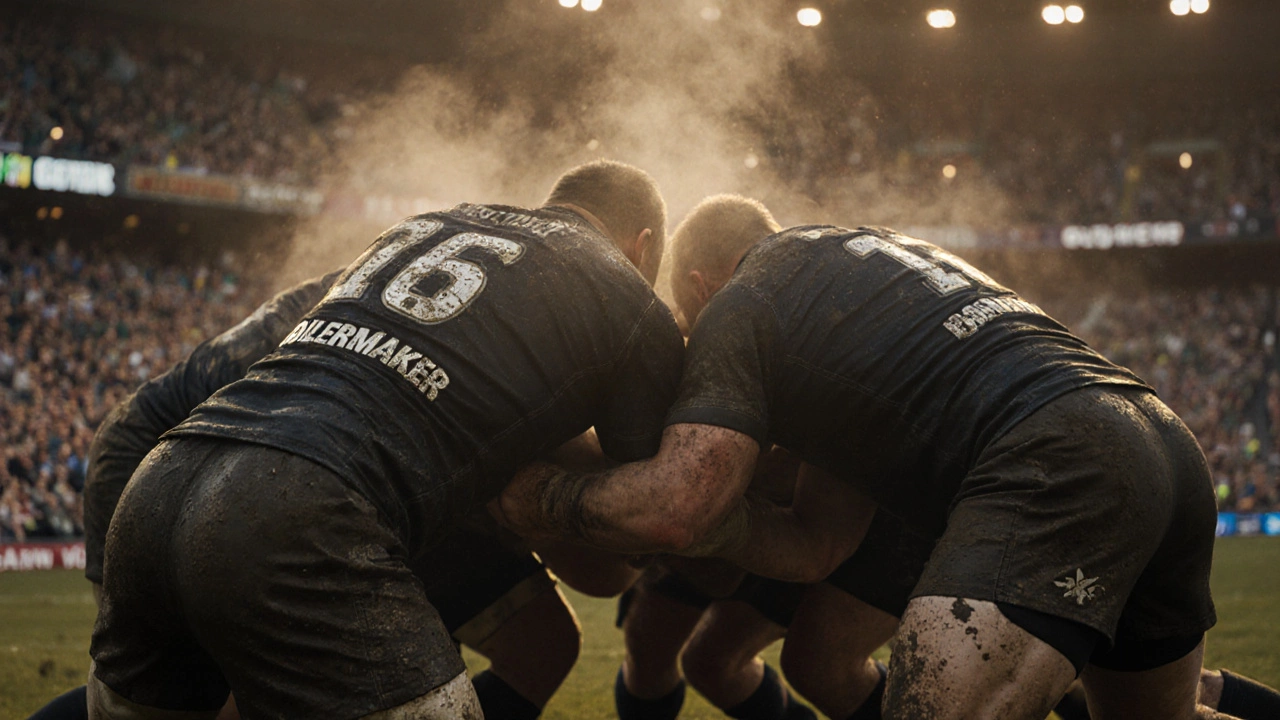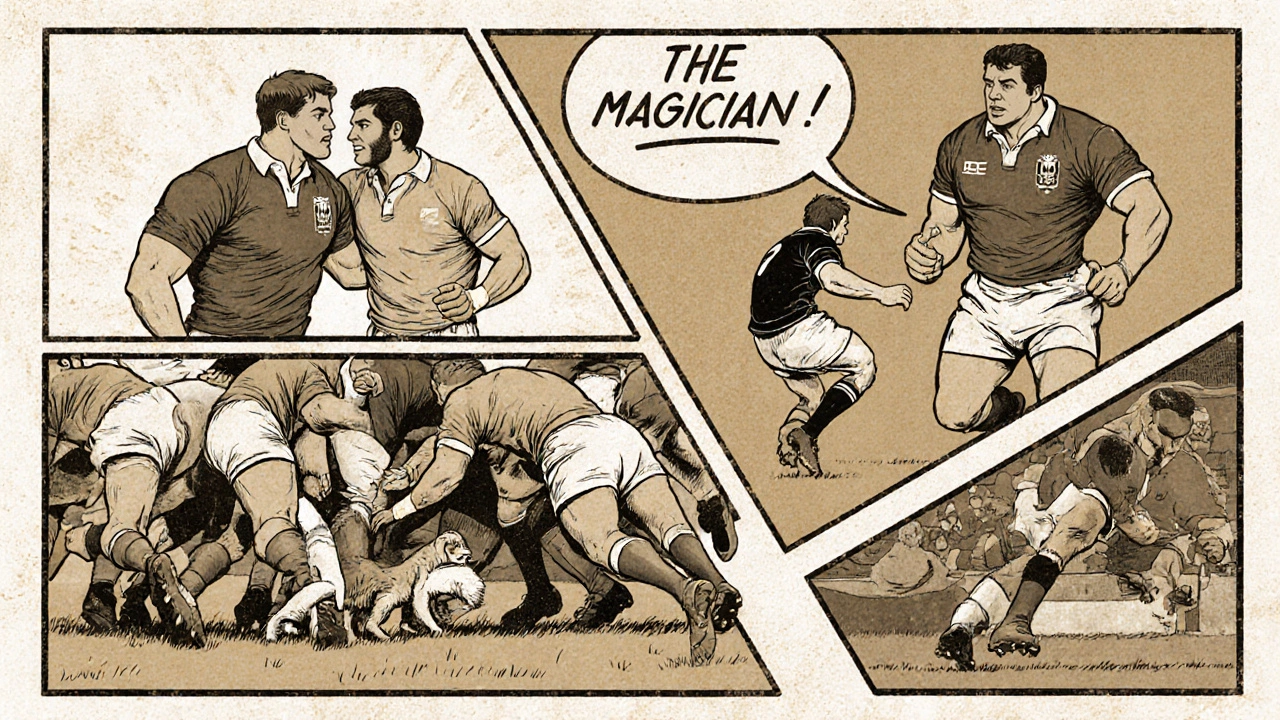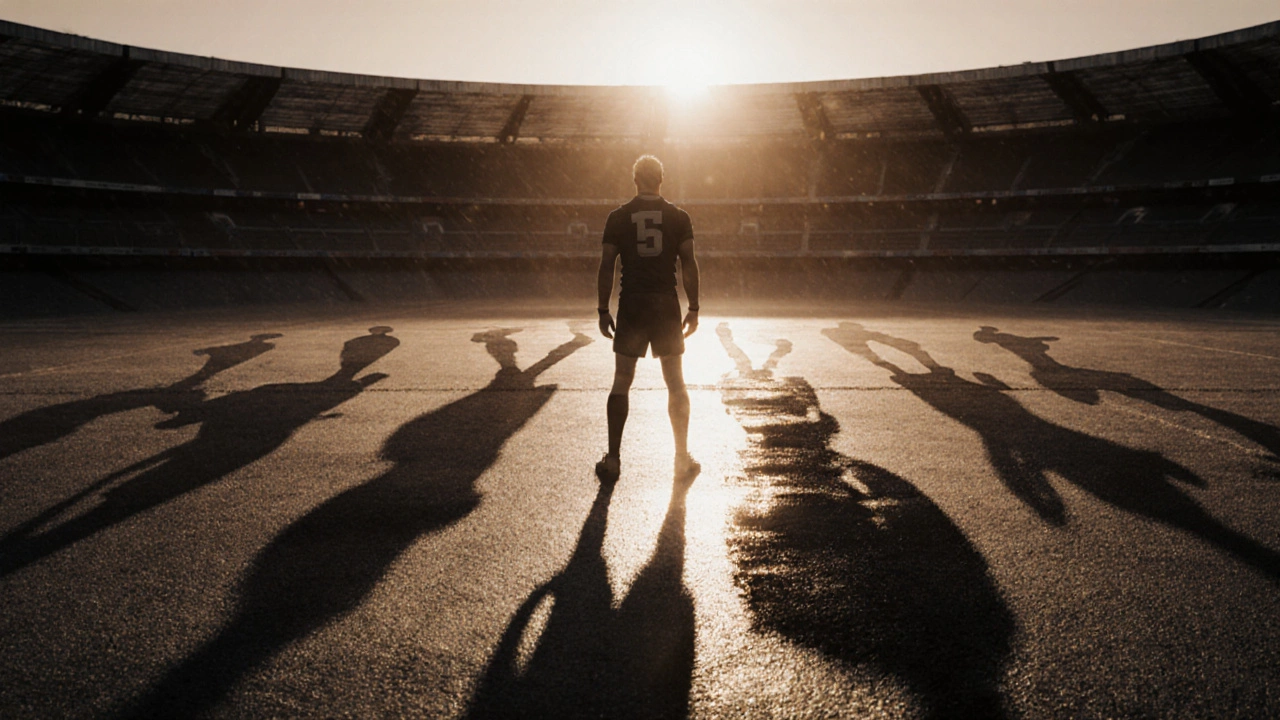What is the slang word for rugby player? Common terms used on the field
 Nov, 24 2025
Nov, 24 2025
Ever listened to a crowd in Auckland or a locker room in Wellington and heard someone called a boilermaker? Or maybe you’ve heard a coach yell, "Get that prop moving!" and wondered why they didn’t just say "player"? Rugby’s full of slang - not just for plays or tactics, but for the people who play it. The slang word for a rugby player isn’t one single term. It changes depending on where you are, what position they play, and even how much beer they’ve had after the match.
"Rugby Player" Isn’t Really What They’re Called
In Australia, New Zealand, South Africa, and the UK, calling someone a "rugby player" sounds like you’re reading from a rulebook. In the sheds, on the train home, or in the pub after a Friday night game, people use shorter, rougher, more colorful words. The most common slang term you’ll hear across the Southern Hemisphere is rugger. It’s simple, it’s old, and it’s everywhere. "Mate, you seen that rugger take out three defenders?" That’s not a typo - it’s just how people talk.But "rugger" is just the baseline. If you want to sound like you’ve been around the game since the 80s, you’ll need to know the position-based nicknames. They’re the real meat of rugby slang.
Position-Specific Slang: Every Role Has a Name
Rugby’s not a game of 15 identical players. Each spot on the field has its own culture, its own reputation, and its own nickname. These aren’t just labels - they’re badges of honor, sometimes insults, always understood.- Props - These guys are the human bulldozers. In Australia and New Zealand, they’re often called boilermakers - because they’re built like the engines that power ships. In South Africa, you might hear loosehead or tighthead used as shorthand, but only if you’re deep in the scrum talk. To the public? They’re just the big ones.
- Hookers - The guy who throws the ball in at lineouts and hooks it back in scrums? That’s the hooker - and yes, that’s the actual term, not slang. But in pubs, you’ll hear "That hooker’s got hands like a cat burglar" - meaning he’s quick and sneaky with the ball.
- Locks - Tall, powerful, and usually the best jumpers. In Wales, they’re sometimes called lumberjacks. In New Zealand, they’re just the two big blokes in the middle. Their job? To be the engine of the lineout. No fancy name needed.
- Flankers - The workhorses. They’re everywhere. In Australia, they’re called ferrets - because they’re small, fast, and dive into every ruck like they’re hunting. In England, you might hear openside or blindside, but again - those are positions, not slang. The real nickname? The Dogs. Because they never stop.
- Number 8 - The guy who controls the ball at the back of the scrum. In South Africa, he’s the engine room. In New Zealand, he’s often just called the last man. But in Aussie clubs? He’s the boss. If he’s got the ball, the game moves.
- Scrum-halves - The brains of the operation. Short, fast, always talking. In the UK, they’re the snipers. In Australia, they’re the gossips - because they’re always whispering to the fly-half. In New Zealand? They’re the link.
- Fly-halves - The playmakers. The ones who decide when to kick, when to pass, when to run. In Wales, they’re the generals. In Australia? The thinkers. In South Africa? the magician. If the fly-half’s on, the whole team’s on.
- Centers - The hitmen. The ones who break the line. In New Zealand, they’re the smashers. In England, they’re the bricks. In Australia? They’re just the ones who don’t get tackled - because they’re too heavy or too fast.
- Wingers - The finishers. The ones who score tries. In every country, they’re called the lightning. Or the speedsters. But the most common? The finishers. They don’t need to be big. They just need to be fast. And they know it.
- Fullbacks - The last line of defense and the first guy to counterattack. In New Zealand, they’re the sweepers. In Australia, they’re the backfield generals. In Wales? The last man standing.

Why Do They Even Use Slang?
It’s not just about being cool. Rugby’s a brutal, physical game. The language reflects that. Slang builds identity. It creates belonging. Calling someone a "boilermaker" isn’t just describing their size - it’s saying they’re tough, reliable, and built to take punishment. Calling a flanker a "ferret" isn’t an insult - it’s praise for relentless energy.There’s also history. Many of these terms come from old British military slang, colonial rugby clubs, or working-class communities where rugby was the only sport that mattered. "Rugger" itself dates back to the 1880s. "Boilermaker"? That came from the docks of Sydney and Auckland, where rugby players were often laborers who worked with heavy machinery. The nickname stuck because it was accurate.
And let’s be real - in a game where you’re tackled by a 120kg man every 30 seconds, calling someone "player" just feels too soft. You need something that carries weight. Literally and figuratively.
What About Women’s Rugby?
The slang is catching up. In women’s rugby, you’ll still hear "rugger" - but it’s less common. Many teams now use "player" or "athlete" out of respect. But in grassroots clubs, especially in Australia and New Zealand, you’ll hear "she’s a beast" or "she’s got a 100-kilo tackle". The culture’s changing, but the spirit’s the same. The slang just evolves.Some teams have even created their own terms. The Australian Wallaroos (the national women’s team) have a nickname for their forwards: "The Iron Maidens". It’s not official. But you’ll hear it in the stands.

Don’t Use These Terms Unless You Know the Context
Here’s a warning: not all slang is friendly. Some terms are used only by teammates. Say "boilermaker" to a prop you just met at a pub, and he might laugh. Say it to his coach, and he’ll nod like you’ve passed a test. But if you call a winger a "flashy bastard" - even if you mean it as a compliment - you might get a stare. Rugby’s full of inside jokes. You need to earn the right to use them.Also, avoid terms like "dumbhead" or "wet blanket" unless you’re on the team. Those are locker room insults. They’re not compliments. They’re tools of bonding - but only if you’re part of the group.
So, What’s the Slang Word for a Rugby Player?
There’s no single answer. But if you had to pick one word that covers everyone - from the prop who weighs 130kg to the winger who runs 100 meters in 11 seconds - it’s rugger. It’s simple. It’s universal. It’s been around for over a century. And if you say it with the right tone, it carries the same weight as "warrior" or "soldier".But if you want to sound like you really know the game? Use the position names. Call the hooker "the link", the flanker "the ferret", the fly-half "the magician". That’s when you know you’ve stepped into the real world of rugby - not just the TV version.
Next time you’re at a local match in Sydney, listen. You’ll hear "Get that rugger moving!" or "That lock’s got legs like a crane!" And if you smile and nod like you get it? You’ve just become one of them.
Is "rugger" considered offensive?
No, "rugger" isn’t offensive. It’s a long-standing, affectionate term used across rugby-playing nations. It’s the equivalent of calling a footballer a "footy player" in Australia. It’s casual, not disrespectful. But like any slang, tone matters. Say it with sarcasm, and it might sound mocking. Say it with pride, and it’s a badge of honor.
Do all rugby players have nicknames?
Not every player has an official nickname, but most do - especially in club rugby. Teams often give out nicknames based on appearance, playing style, or funny moments. A player with a big beard might become "The Mountain". Someone who always misses tackles might get "The Bouncer". It’s part of team culture. In professional teams, nicknames are often used behind the scenes, but rarely in media.
Why do rugby players have such weird nicknames?
Rugby’s a game of extremes - big hits, long grinds, muddy fields. The nicknames reflect that. They’re often based on physical traits, job roles, or humor. "Boilermaker" comes from heavy industry. "Ferret" describes a player’s speed and tenacity. It’s not random. It’s a language born from shared struggle and camaraderie. The weirder the name, the more it’s earned.
Is "rugby player" outdated?
Not outdated - just formal. "Rugby player" is fine for official documents, news reports, or interviews. But in the sheds, the pub, or the sideline, no one says it. It’s like saying "basketball athlete" instead of "baller". The slang isn’t replacing the formal term - it’s just the real language of the game.
Can I use rugby slang if I’m not from a rugby country?
You can - but do it right. Learn the terms, understand the context, and never force them. If you’re watching a match in Japan or the USA and hear someone say "That rugger’s a beast," you can nod along. But don’t start calling strangers "ferrets" or "boilermakers" unless you’re part of the team. Rugby’s a tight-knit culture. Slang is a door - you need an invitation to walk through it.